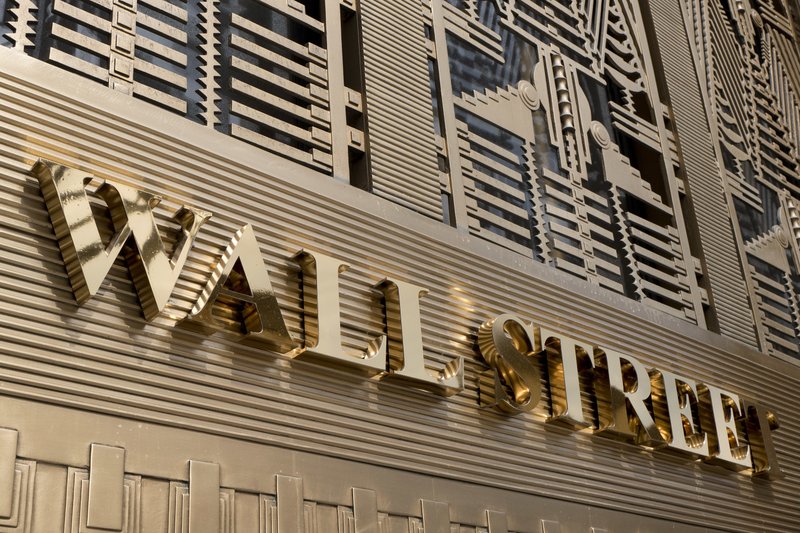NEW YORK -- U.S. stock indexes found their footing after a sharp early loss Monday and finished mixed. Technology companies sank for the third session in a row.
Stocks slumped in morning trading after big declines late last week. Some of the largest losses went to technology companies, including payment and credit-card companies. Indexes in Europe also dropped as Italy vowed to ramp up spending that will increase its deficit.
The S&P 500 index dipped 1.14 points to 2,884.43. The Dow Jones industrial average reversed an early loss of 223 points and rose 39.73 points, or 0.2 percent, to 26,486.78.
The Nasdaq composite sank 52.50 points, or 0.7 percent, to 7,735.95. The Russell 2000 index of smaller-company stocks slipped 2.60 points, or 0.2 percent, to 1,629.51. The Nasdaq and Russell are each coming off their worst week since late March.
A sharp increase in bond yields last week had startled investors and prompted them to shift money out of stocks. Bond markets in the U.S. were closed for the Columbus Day holiday and stock trading was relatively light.
Banks, which often rise along with interest rates, continued their advance. High-dividend companies, which tend to fall when yields go up, recovered some of their losses from last week.
Kristina Hooper, chief global market strategist for Invesco, said technology companies have dropped because investors are concerned that they are vulnerable as President Donald Trump's administration wraps up trade negotiations with Mexico, Canada and South Korea and zeros in on China.
"The U.S. has made very significant concessions [to those countries], and I expect them to do that with Japan as well," she said. "The ultimate goal is to bring China to its knees.
Among payment technology companies, PayPal slid 3.2 percent to $80.55 and Mastercard fell 2.3 percent to $208.26. Elsewhere, Microsoft lost 1.1 percent to $110.85.
Alphabet, Google's parent company, fell 1 percent to $1,155.92 after it said a flaw in its Google Plus social network may have exposed personal information of as many as 500,000 people. It will end Google Plus for consumers next year.
Google found the problem in March, and The Wall Street Journal reported that the company didn't disclose it at the time, partly to avoid scrutiny from regulators and damage to its reputation. The company didn't comment on that report.
Hooper, of Invesco, said technology companies have been returning big profits this year, so investors have been slow to recognize the harm that could come from the trade spat.
"There's the potential for China to place an embargo on rare earth metals, which would be very disruptive to some parts of the tech industry," she said. "Tech is not going to be unscathed in a trade war."
Overseas, Italy's deputy premier vowed to press ahead with a plan to increase spending and the country's deficit even after the European Commission expressed "serious concern" about the notion.
Italy's FTSE MIB dropped 2.4 percent and Italian bond prices dropped, sending yields higher. Germany's DAX fell 1.4 percent and the CAC 40 in France sank 1.1 percent. In Britain, the FTSE 100 fell 1.2 percent.
The euro sank to $1.1488 from $1.1525.
China's government injected money into its cooling economy by reducing the level of reserves banks are required to hold, and its central bank told Chinese banks to lend more to entrepreneurs. Chinese leaders are trying to shore up economic growth that began to cool after Beijing tightened lending controls last year to rein in a debt boom.
Business on 10/09/2018
